Stephan Chambers is the recently appointed director of the Marshall Institute for Philanthropy and Social Entrepreneurship at the London School of Economics (LSE). He talks to Alliance editor, Charles Keidan* about the Institute’s aim to prepare a generation of young people for leadership in a world where public benefit is as important as private, about the need for high quality research on private contributions to that benefit and about his view that what he calls the ‘ego-return on philanthropy’ should not be overlooked…along the way, he also says that what the Marshall Institute is not trying to do is create a new field of philanthropy studies.
What was the founding vision of the Institute?
The Marshall Institute was set up at the LSE to increase the impact of private contributions to public benefit. It was conceived by Paul Marshall and Tom Hughes-Hallett. They were scratching away at the idea that were some things state provision couldn’t do, that it couldn’t just be replaced by the private sector and that we needed to think more deeply about what alternative solutions might look like, and those came in the form of philanthropy, volunteering, social enterprise.
If you mix those up with an appetite for rigour, analysis, measurement and risk, you get close to the genesis of the Institute. They wanted a kind of laboratory for testing a set of assumptions and a platform.
Since I started, about eight months ago, we’ve refined that core vision into three principles: first, there needs to be a better and more extensive and more joined up body of serious, high-quality research into the impact of private contributions to public benefit: social finance, social entrepreneurship, impact investing and venture philanthropy.
Second, there should be new courses for individuals and organisations that embrace the new ‘social business’. And third, the key actors should have somewhere to meet, talk, and plan. The research piece is incredibly important. Being able to draw on one of the greatest agglomerations of social science capacity in the world is a fantastic thing for our movement. We have our own researchers in this building, but we also have the ability to link to other people in other departments doing other things around the LSE.
What level of resources was involved in establishing the Institute and where are they going?
Paul Marshall gave £30 million to the LSE, of which £10 million pounds is seed funding for our Institute, to allow us to spend at least our first 5 to 6 years establishing the basis for our own sustainability. The other £20 million is to build a new LSE building that will house a number of departments. Really, the way the money is split is secondary. The main point is to ensure that we have a central place in this research institution, we hope in perpetuity. Paul cares a great deal about sustainability. He is committed to this Institute existing for the next 20 or 30 years.
Universities are increasingly relying on philanthropic funding but, ultimately, courses and research have to be sustained from within universities’ funding streams. How will that work with the Institute?
Well, if the first piece of the Institute’s mission is research, the second piece is teaching. It strikes us as enormously important to prepare young people for the world in which leadership is about public benefit as much as private benefit. In the second half of the 20th Century that leadership capacity was principally fuelled by the graduates of programmes like MBA programmes.
My view is that this century requires us to create a different kind of experience for those future leaders; one that doesn’t retrofit social purpose or public benefit to commercial and market discipline but which has that as its founding vision. We believe that the Marshall Institute, working out of the LSE can catalyse that revolution so that most of the elite institutions around the world will copy us.
We don’t believe our principal purpose is teaching grantmakers how to be more efficient grantmakers. We believe that our purpose is in creating a generation of leaders for whom public benefit and private discipline, public benefit and market mechanisms allow them to change the world for the better, no matter what sector they work in.
Philanthropy in my definition is the deployment of private capital, risk adjusted for public benefit. The risk element is very important because that’s where social entrepreneurship comes in. You can do perfectly effective philanthropy if you give your money to donkey sanctuaries and museums, but I think the interesting world is where you are making explicit, risky investments, in things that, if they prove themselves, have the capacity to attract follow-on funding from either the private sector or government.
How does your vision of the Institute and the leadership capabilities you seek to foster relate to the academic disciplines in which you’ll be situated at the LSE?
The great thing about being an Institute within the LSE is that we can draw on resources from across a range of departments: our Research Director is in Economics; our most senior researcher is in Social Policy; I am in the department of Management. Not only will we draw across a range of disciplines, we will draw on a set of experimental modes of delivery. One of the things that universities struggle with is innovation in their own practice, paradoxically since they are full of people who know more about this than anyone else.
How will your programmes benefit from this interdisciplinary setting?
We have a simple model of three layers. The lowest is entirely open, it’s not accredited or degree-bearing or assessed. Anyone in the LSE community can attend our public lecture series which is attempting to immerse people in questions like what is impact investing? What is social finance? How might you measure impact? Does scale matter?
What we’ve found over the last six months is the appetite in the LSE community for this is absolutely vast. We launched a series of weekly lectures in November 2016, expecting around 40 people to show up. Instead, 200 showed up and have continued to show up throughout the series. That’s a remarkable signal from the internal LSE market about the appetite that young people have for meaning in their lives.
Level Two is degree-bearing programmes where either we contribute to other people’s degrees or we create our own. The LSE’s Masters of Public Administration (MPA), which is very prestigious, has a suite of elective options in its second year and we have launched our own electives explicitly designed and delivered by us that students can opt into. The first, Applying Behavioral Economics for Social Impact, has already been delivered and was hugely oversubscribed. There will be a second option next year in Social Policy.
Also, with the philosophy department, we’ve introduced an effective philanthropy course, and co-created a set of practitioner sessions, where we bring donors, grantmakers and institutional investors into the course. Half the sessions are in philosophy, and half the sessions are in practice and the students get a chance to make the connections between the two. We also hope to launch our own Masters programme in the Autumn of 2018, which will be the prototype for what we hope will be the successor to the MBA globally, currently called the Executive Masters in Social Business.
The third layer of teaching enterprise is what in the jargon would be called executive education. We will provide fee earning courses to private clients in response to their needs.
What’s your current plan for the research element?
We plan to do our own research through our Research Director and using our existing research faculty in fields like Behavioral Economics as well as in what Julian Le Grand is calling the hybrid economy. We also propose to support research done in the rest of the LSE through small grants so our colleagues across other departments to talk to us and each other about work that they’re doing that involves this question of public benefit from private contributions.
Besides the research and the teaching, there’s a third element that we’re calling convening – getting all the actors in this space, by which we mean foundations, philanthropists, family offices, professional advisors, academics – in disinterested, non-commercial environment which we hope will generate a series of research projects that depend on those organizations for data.
You’re hosting an event with Rockefeller Philanthropy Advisors today where you’ll be launching research by a consultant on the Theory of a Foundation. Is that an example of your convening?
Exactly that. Even before the institute was formally launched, we worked with Rockefeller Philanthropy Advisors to convene a set of European foundations and find out from them what kinds of things they were worried about, what they thought about, how they governed themselves, how they made decisions and so on. We think that’s absolutely critical because it puts us into conversations with people whose experience of philanthropy really matters.
But at the same time universities are increasingly judged on their research output. How will you be able to create incentives for scholars to research in a field that’s still, let’s say, underdeveloped?
We’re not trying to create a new field of philanthropy studies, because the best research relating directly to public benefit is being done by people working in established disciplines.
For example there are a number of very senior economists around the world who are working on what we would call altruistic capital. We consider our function to be drawing that work together, giving those people space to collaborate, not creating a field. If you want the very best people to study social entrepreneurship, you find the very best people studying entrepreneurship with public benefit in mind. You don’t create a new field and then hope it populates.
The real question for us is, why is it interesting that some of the most senior scholars in the world care deeply about public benefit and what can we learn from their rigorous research? When you said that universities are increasingly judged on their research that’s entirely as it should be and we should not get spooked into producing work that apparently has immediate practical benefit, but where that benefit is illusory because the research on which it’s based is insubstantial.
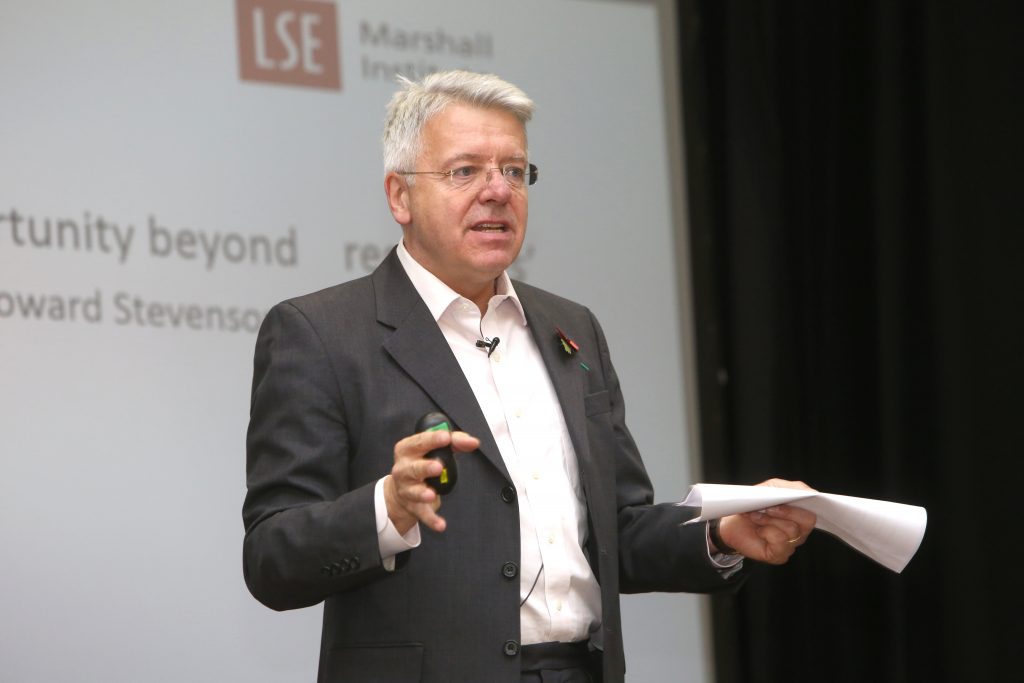 Do you see yourself helping to raise the standards of the field of academic centres studying philanthropy?
Do you see yourself helping to raise the standards of the field of academic centres studying philanthropy?
I wouldn’t be so presumptuous as to say that other people need our help raising their standards. It’s my job to create links between people doing outstanding work that bears on this question. If that means that we support scholars who self-identify as working in philanthropy, great. But if I had to bet I’d say it’s more likely that they will self-identify as working in, let’s say, development economics or behavioral economics or public policy. It’s much more likely because they will already have, as it were, passed muster in a disciplinary sense. But that’s an open question.
At the same time the fact that the Institute was set up must say something about what the founders felt about the existing provision.
You mean, is it a neglected area? Clearly yes. Although I think it’s much less so at places like the LSE than you might imagine. Most scholars would say their work had public benefit. Some of it may be very distant, very hard to quantify, but the number of people who’d say, that which I do is utterly abstract and will never have any redeeming social value….
But how do you pin down the elements of public benefit that are about philanthropy and social entrepreneurship?
The idea of private contributions adds in and takes away a whole range of things. Notice we’re saying private contributions not private capital. We’re interested in things like volunteering as well as spending money. So we’ve tried to draw the parameters broadly enough not to do violence to the question, narrowly enough in order to be able to say that there are some things that we don’t do like trade or governmental interventions for public benefit.
Inevitably that definition will get more precise in the coming 12 months because we’ll start to get known for things, which means we’ll start to be able to say, ‘actually, we’re better at this than that so we’re not going to do that at all.’ There’s a complicated interaction between what we think we’re doing and what the world wants us to do and we have to be humble enough to learn from the world what most needs doing.
The study and teaching of philanthropy is growing globally. For example, the first Chair in African Philanthropy is being launched and there’s a new centre in India. Is that all to the good?
Absolutely. The more diverse, the more robust the ecosystem is the more successful we will be. The more this is a generalizable set of principles, even where there is clear variation in attitude or approach or politics or whatever it is, the better. Am I going to agree with everything that goes out in the name of academic studies of philanthropy and social entrepreneurship? Absolutely not.
I think that we don’t know what we mean when we talk about scale, for example, or when we talk about impact investing. There is an endless debate about whether there’s such a thing as social entrepreneurship or only social entrepreneurs. The more of this, the better.
The new Marshall Institute and other centres are privately funded but university-based. So two questions: how does one get universities to assimilate this form of study and, two, are there any conflicts of interest in having philanthropic funding to essentially study itself?
Are there any conflicts? In my experience, no. The LSE is a system which is constitutionally robust and understands how to deal with a donor and somebody making substantive academic decisions. We have a donor who’s pretty smart, and understands the interaction of research, practice, teaching, and convening. In theory, of course, it’s possible that research could be influenced by whoever funds it, but I don’t feel that is true here. The answer is full commitment to transparency.
What does transparency involve?
It seems to me that it’s not a priori the case that research funded by an interested party is without value. But it is a priori the case that it is without value if it is not disclosed. Provided philanthropic support is transparent and disclosed, I don’t believe it presents risk to activities like ours.
So you’re basically saying the funding arrangement between Paul Marshall and the LSE should be fully disclosed and that should be the case for all other funding arrangements.
Yes. Universities have to be smart about how they manage potential conflicts of interest. I’ve experienced two major projects; one at Oxford with Jeff Skoll and one here at the LSE with Paul Marshall and in both cases the institutions were sophisticated enough that there was no single incident of conflict.
As to your first question – getting universities to internalize this sort of study. If there is no appetite from serious scholars to do serious scholarship in an area it will wither and die. But my very strong intuition is there is plenty of appetite. Something dramatic is happening in the student population. Young people care as much about meaning as they do about money and in my observation, they now have a much more evolved understanding of how they relate to their own future commercial success. They are intolerant of generating negative externalities and appropriating private rents.
They want to do something that they’re proud of, that’s meaningful, that has net positive social value, so there is pressure from students on institutions to offer more courses, more sensitivity to this kind of scholarship. Far from this being an unsustainable addition to the life of a major research university, I think it will become indispensible.
So you’d see a shift from research and teaching on public benefit being privately funded, to being demanded by students and funded from universities themselves?
Yes, although I don’t think it will be quite so black-and-white. I think there’ll be, as there always has been, a mixture of paid for by fees, paid for by the central institution (or government), paid for by external private donors. I can’t absolutely guarantee that when Paul’s money runs out we will be utterly self-sufficient, but I do think this movement is for real and will start to move from the periphery to the centre in all major institutions like the LSE.
Effective altruism seems to capture the imagination of some students and you’re running a course on effective philanthropy that has a strong effective altruism component to it. What are your thoughts on the effective altruism movement and its intellectual underpinnings?
I am a partial fan. I know and have worked with Peter Singer, I know and work with Will MacAskill, and I greatly applaud the rigour that this has brought to the debate about giving generally and the profile that this has managed to acquire globally. It’s caused people to have serious conversations about giving at all and when they give, to whom and how.
There is one point of difference. They discount to zero the egocentric benefits of giving whereas I am interested in whether that positive feeling that I generate when I give to something that is apparently inefficient has positive spillovers. They might, for example, cause me to behave differently in some other aspect of my life which then has a positive return. I think that’s highly likely, so I’m much less dismissive of what you might call the ego-return of philanthropy.
Do you think effective altruism’s rigid view of the public benefit is a bit off-putting to some people?
Yes, I think a lot of people feel that they can’t live by those standards. I also think a lot of people have an intuition of the value of things that aren’t obviously socially valuable, opera being a perfect example. Why is it to our collective benefit for a small number of rich people give a large amount of money to opera from which only a small number of people benefit? It depends on whether you think there are positive externalities. I would argue that if you change opera to Shakespeare, that’s already a harder case to argue. And if you change Shakespeare to public broadcasters like the BBC, why would you not want to support that?
There’s only one other point that I want to make, which I made in the first lecture: I don’t want people to think of philanthropy as something that only the very rich do. And I don’t want people to think of social entrepreneurship as something that is only accessible to people who have tech or tech-like or digital innovations that have system level or scale impact. Young people make philanthropic choices with the allocation of hours that they have in their working lives, the so-called 80,000 hours movement.
If you said to young people, ‘for 80,000 hours, read £8 million. How much of that do you need to feed yourself and your family? How much of that do you need to spend having fun? How much of that would you like to allocate to the public benefit and so on. You would make a bunch of informed decisions about how to allocate your resource.’
We tend not to do that with our lives, but we probably should. That way of thinking turns domestic logic into a philanthropic logic. The same with the entrepreneurial mindset. If we tilted people’s self-perception from managerial to entrepreneurial, we would probably unlock a lot of value. We tend not to do that because we stereotype entrepreneurial behaviour as being start-up behaviour but maybe it isn’t. Maybe it’s about innovating inside existing institutions.
So one of the things the Marshall Institute might do is help redefine entrepreneurship and philanthropy.
Correct. We’re about increasing the impact of private contributions to public benefit. That touches lots of activities and is potentially powerful. We will also try to create some high-profile buzz around people trying to make the world a better place in the way that Skoll did so successfully, and we hope to do at the Marshall Institute.
For more information on the Marshall Insitute, visit the website.
*Disclosure statement: Charles Keidan assisted with feasibility work on behalf of the Marshall Institute in 2014.
For more, don’t miss the March 2017 issue of Alliance: Philanthropy scholarship and practice – bridging the divide, published on 7 March.


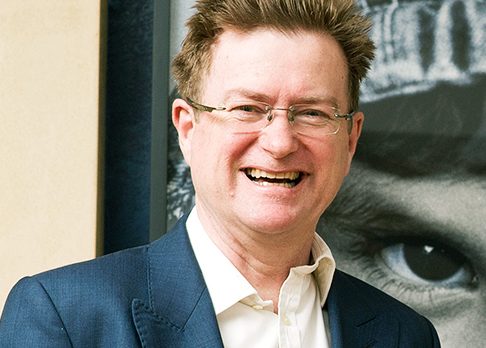
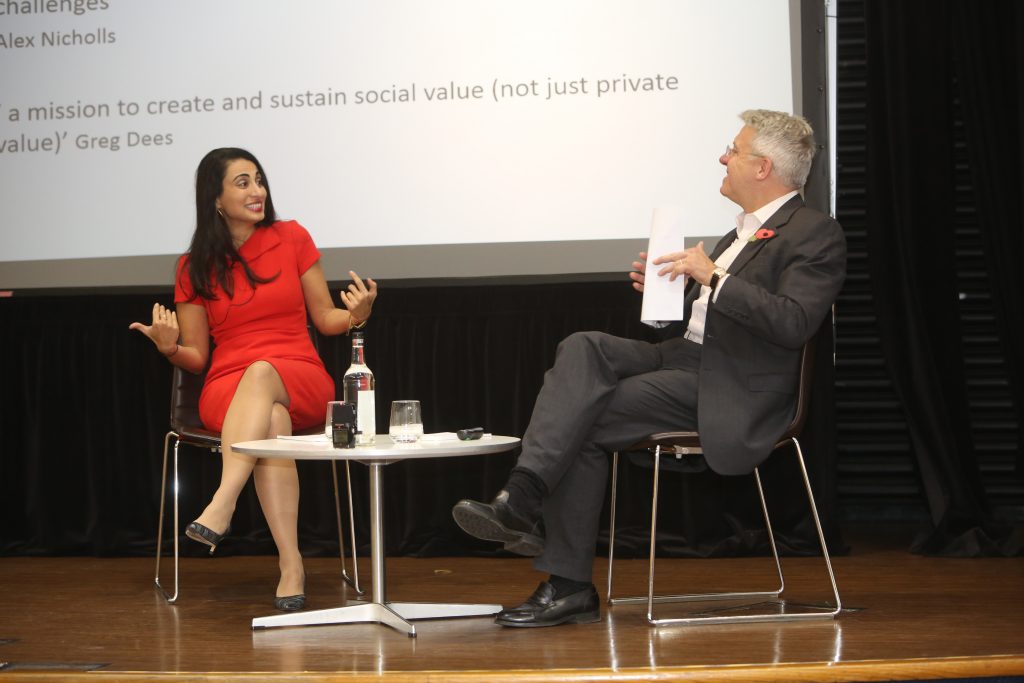
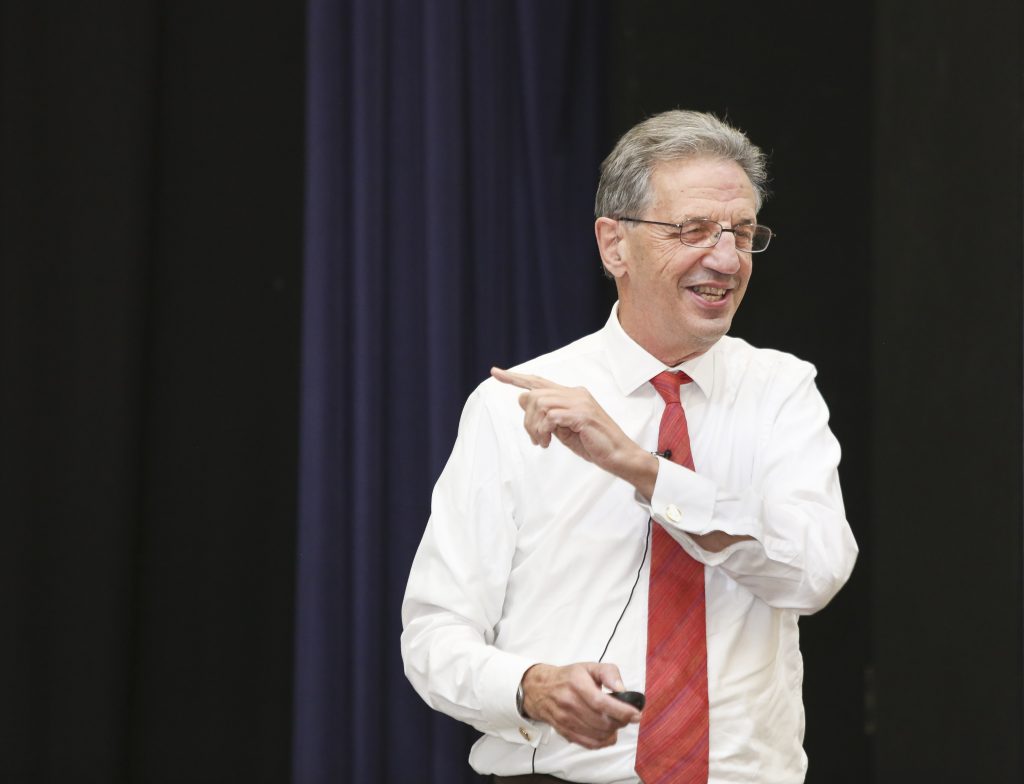
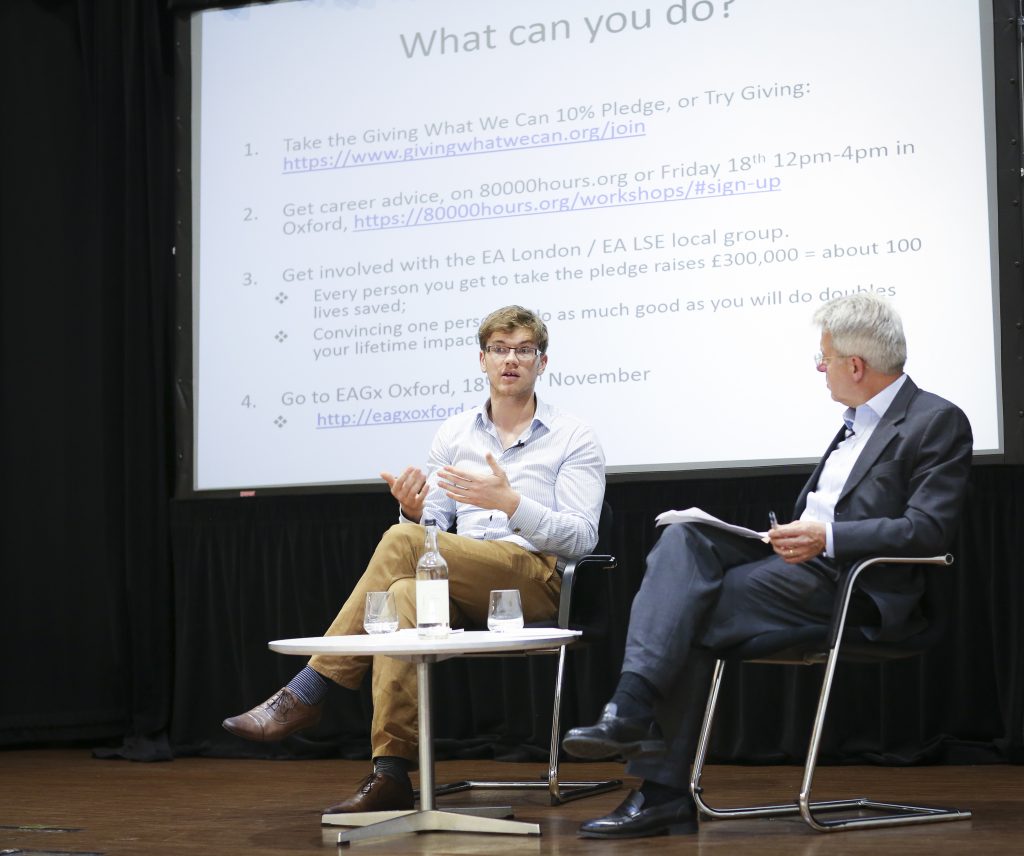




Comments (0)